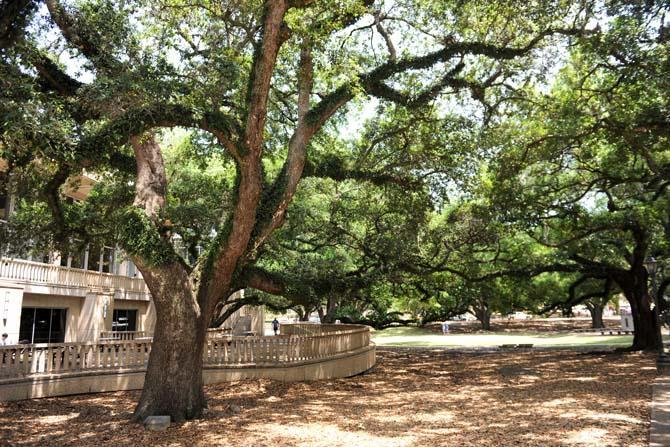While the University begins a new semester and endures systemic upheaval, behind the scenes, one committee is working to ensure the University’s future by preparing for the process of reauthorization of accreditation.
According to geology professor Darrell Henry, who is also acting as director of reauthorization of accreditation, the University is currently in the process of preparing the documentation it will need to send to the
Southern Association of Colleges and Schools Commission on Colleges, or SACSCOC.
SACSCOC is the regional accrediting board for more than 800 schools in 11 southwestern states from Texas to Virginia. In this capacity, SACSCOC sets standards for all institutions of higher education in its jurisdiction, evaluates the schools’ applications and awards accreditation.
Henry said a school that does not receive accreditation would both lose prestige in the eyes of its peers and would be ineligible for federal grants for students
and research.
Faculty Senate President Kevin Cope said the University’s declining budget and vacant administration positions could hurt its chances of having accreditation reauthorized. He said although the committee is doing an admirable job, the University’s limited resources will be apparent when SACSCOC receives the University’s application.
However, Henry said he is not worried about the school’s accreditation status.
“We always end up with a few recommendations,” Henry said. “We usually get about 25, which is about average for comparable institutions.”
SACSCOC issues recommendations based on reports compiled by institutions about how these schools are complying with SACSCOC’s Principles of Accreditation.
The Principles of Accreditation is a list of 98 criteria outlined and revised every few years by SACSCOC. If an institution shows that it complies with all of the principles, SACSCOC will reauthorize its accreditation status. If it does not comply with a principle, SACSCOC will issue a recommendation for that specific issue.
“[The principles are] very general,” Henry said. “They cover basically how a university operates — that could include governance structure, athletics, courses or faculty. What SACS wants to know is if we have all the pieces and personnel to properly run a university.”
Henry said the team in charge of the University’s reauthorization campaign understands there are
areas that are unlikely to comply with the Principles of Accreditation.
He said the school’s auditing process has historically been a problem because the fiscal year of the University does not align with the timetable for submitting the compliance report. The University’s audit is usually released in January, he said, while the report must be submitted by September.
Additionally, the reorganization of the University’s administration could mean the University will not comply with accreditation principles regarding governance structure.
Principle 3.2.1 states that the governing board of the institution must be in control of appointing and evaluating the institution’s CEO.
Henry said the consolidation of the president and chancellor positions has made it unclear if the University is in compliance, but said he is working with SACSCOC to work the problem out.
“We’ve already had Vice President [of SACSCOC Barry] Goldstein here, along with Belle Wheelan, the president, to discuss issues with restructuring.”
Henry said.
University progresses in reauthorizing accreditation
September 3, 2013
Oak trees provide dappled sunlight in Memorial Oak Grove, which was dedicated in 1926 for the memory of fallen soldiers in World War I.
More to Discover








